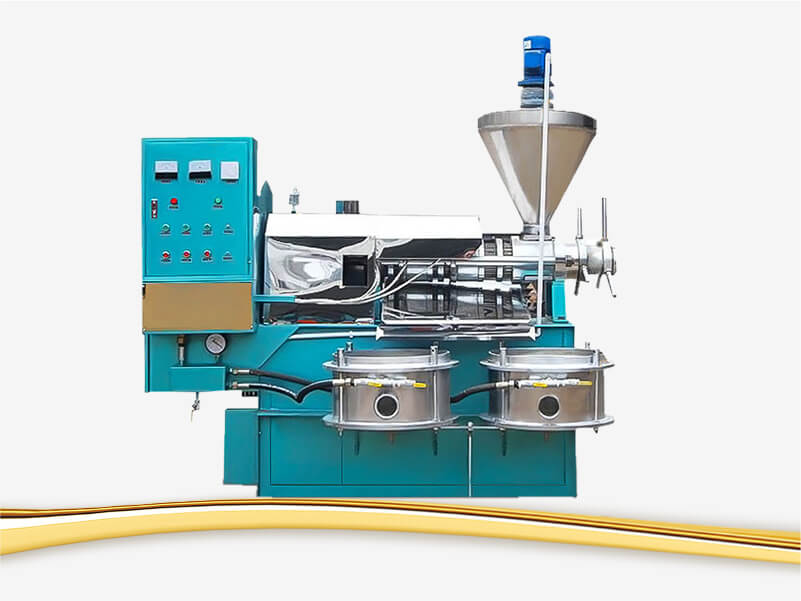Difference between crude oil and refined oil
With the continuous improvement of people's living standards, the majority of consumers need edible oil to cook dishes. Therefore, squeezing refined oil is increasingly favored by people.
After pressing, the oil produced without refining is called crude oil. Crude oil refers to unrefined pressed or leached animal and vegetable oils (such as machine pressed, soil pressed, melted and fire refined lard in rural areas). Its main component is a mixture of glycerol and fatty acids (commonly known as neutral oil); It also contains non glycerin substances, collectively referred to as impurities. According to the dispersion state of impurities in oil, they can be roughly divided into four categories.
1. Suspended impurities: including sediment, billets, powder and other solid impurities. The existence of these impurities not only makes the oil easy to digest and rancid, but also makes it inedible.
2. Colloidal impurities: including phospholipids, proteins, sugars, etc., the most important of which is phospholipids. The existence of some impurities not only makes the oil easy to digest and rancid, but also produces a large number of foam and black precipitation during cooking; It seriously affects the color and flavor of fried and fried foods, and also loses the nutritional value of the oil wood body. It also has certain toxicity
3. Oil soluble impurities: including free fatty acids, pigments, hydrocarbon waxes, aldehydes, ketones, etc., as well as trace metals and organic phosphorus, mercury, polycyclic aromatic hydrocarbons, aflatoxin, etc. caused by environmental pollution. The existence of these impurities is not harmful to human body, and some impurities are harmful to human body
There is also carcinogenic effect.
4. Moisture: there is much moisture in the crude oil, and the existence of moisture is very easy to hydrolyze, rancidity and deterioration of the oil.

Refined oil is the product oil that meets the national quality standard when the harmful and unhelpful impurities such as edible and storage are removed from the crude oil through dephosphorization, deacidification, degumming, deodorization, decolorization and other processes. The refined edible oil not only meets the quality standards of relevant departments, but also plays a great role in human health. There are three methods for refining crude oil:
1. Mechanical method; It includes sedimentation, filtration and centrifugal separation, mainly used to separate the mechanical impurities suspended in the oil and some gels
Sexual impurities.
2. Chemical method: mainly including acid refining, alkali refining, in addition, there are greasing, oxidation, etc. acid refining is treated with acid, mainly to remove pigments. Colloidal impurities are treated with alkali to remove free fatty acids. Oxidation is mainly used for decolorization.
3. Physical and chemical methods: mainly include hydration, decolorization, steam distillation, etc. hydration is mainly used to remove phospholipids, decolorization is mainly used to remove pigments, and steam distillation is used to remove odor substances and free fatty acids.
Through refining, the water content, impurities, acid value and peroxide value of crude oil can meet the national quality standards, and it is not easy to deteriorate. It is more conducive to storage. The color is crystal clear and tastes light and fragrant. It will not produce a large amount of oil smoke during cooking and maintain the flavor of oil.

 WeChat / WhatsApp
WeChat / WhatsApp
 Online messageIf you have any questions, please leave a message here to tell us, we will contact you in time!
Online messageIf you have any questions, please leave a message here to tell us, we will contact you in time! Products
Products









 Online service
Online service Telephone
Telephone Message
Message